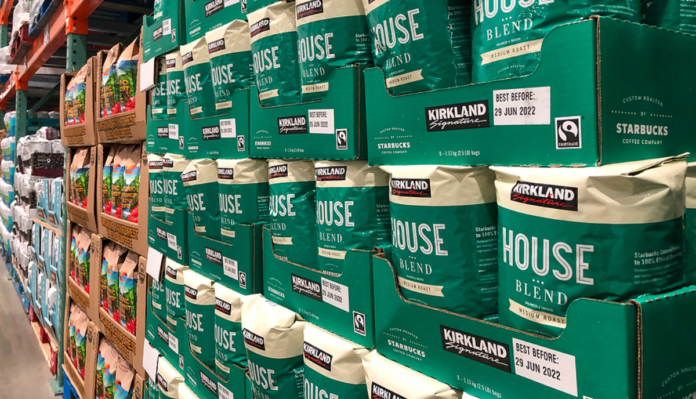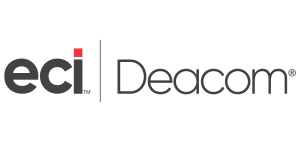
Article sponsored by Deacom ERP, an ECI Software Solution
There has been a sea change in the private label market. What was once considered a lower-quality, the lower-price product is now viewed as a high-quality alternative to name brands.
This change in perception can be attributed at least in part to the fact that many branded products were out of stock during the pandemic, which spurred consumers to try private-label brands. A McKinsey report shows that nearly 20% of consumers bought more private CPG brands during the pandemic, and 90% expect to continue purchasing private brands at the same rate or higher. The top reason, cited by almost 90% of people who switched, is that they view private label brands as offering better value – quality for the price. And Deloitte notes that consumers would rather switch to a private label brand than switch to a different form of the product, such as buying canned food rather than fresh.
Another indication of this sea change is the research showing that private label is appealing to consumers in all income brackets, rather than just the lower-income demographics that previously made up the target market. McKinsey reports that almost three-quarters (74%) of shoppers are changing their shopping behavior to “trade down” to less expensive products. This number holds remarkably steady across income brackets: 74% for low income, 75% for medium income, and 72% for high income. Of those who have traded down, 26% did so by opting for a lower-priced or private-label product.
Here are a few more data points showing that private label is booming:
- Between February and March of 2022, the private label share of YoY sales growth for CPGs jumped from 12% to 20%.
- After acquiring Whole Foods, Amazon expanded the 365 brands from 300 products to 2,200 products.
- In the fiscal year 2021, Costco’s Kirkland brand had $58 billion in sales. According to CNN, Kirkland is the biggest CPG brand in the U.S., measured by sales.
- In Q4 2021, sales penetration for Albertsons’ private label products reached 25.6%.
But right now is a pivotal moment. As inflation continues to ease, private label manufacturers can either up their game to achieve sustained growth or risk losing out to national brands as consumers return to their previous buying habits.
Challenges and priorities for private label food and beverage manufacturing
“To stay ahead of the competition, private label manufacturers need to address their ongoing challenges,” said Amanda Haley, Lead Product Consultant from ECI Software Solutions, which provides ERP solutions for the food and beverage industry.
Haley identified three main challenges currently facing the private label manufacturers:
First and foremost, private label manufacturers are looking to continuously innovate and improve their products to maintain their recent gains. Their pandemic-level growth cannot be maintained, let alone increased, without continued innovation and improvements.
Private label manufacturers are also looking to build strong relationships with their retailers to ensure their products are promoted and sold in the most effective way possible. They are also trying to build a stronger online presence to reach consumers and build brand awareness. Consumers may be willing to try new store brands, but they can’t buy products they don’t know exist or can’t find in the store.
Additionally, private label manufacturers want to be more efficient and achieve greater cost efficiency in their supply chain operations. And in line with their first challenge of innovation, they want to ensure their products are of the highest quality and fulfill consumer expectations.
Let’s dig into these challenges.
Innovation
In the past, private brands typically took a copycat approach in order to deliver lower-priced options. Today, private brands are becoming innovators in their own right.
More than 80% of food retailers and manufacturers say that innovation is the top strategy for growing private label market share, according to recent data from FMI – The Food Industry Association.
Here’s where they see the greatest opportunities:
- Premium products (69%)
- Product options with simple ingredient lists (60%)
- Products offering strong price/value in a category (56%)
- Prepared meal solutions (42%)
And private labels are well-positioned for innovation success. McKinsey notes that retailers have a wealth of consumer data that individual consumer goods manufacturers might not have access to. Using this data along with a design-to-value method, which pairs improvements in product preference with reductions in packaging and raw materials costs, private label manufacturers may be able to “assertively introduce new products with features and benefits that surpass those of traditional consumer goods brands.”
While pursuing this innovation, manufacturers and retailers also need to pay attention to today’s core consumer values including health and wellbeing, sustainability, and transparency.
Retailer relationships and brand awareness
To compete for market share, private label brands must not only match traditional brands on the attributes consumers value most, but also ensure that consumers are familiar with the products. This will require retailers and private label manufacturers to partner on ways to meet consumer expectations and build brand awareness – both in-store and online.
There’s a lot of upside for both retailers and manufacturers in developing strong collaborations. Two-thirds (66%) of consumers say that if they like a retailer, they assume the store brand products will be of high quality. For many retailers, like Trader Joe’s, Costco, and Aldi – their private labels are a big reason customers come to the store.
But there’s certainly room for improvement, especially when it comes to eCommerce. FMI found that about 60% of retailers’ private brand products are already available on their eCommerce platforms, and that both retailers and manufacturers believe there’s room to improve with strategies like:
- Search functionality prioritizing private brand offerings (80%)
- Providing compelling product images (73%)
- Tagging attributes (e.g., health and wellbeing, sustainability) in search (65%)
- Using suggestive selling in search results (53%)
Efficiency in the plant and across the supply chain
As private labels pursue innovation and build brand awareness, they can’t lose sight of what makes them so attractive to consumers in the first place: the price. Especially with the current inflation pressure, consumers are feeling the pinch every time they go to the store.
But NielsenIQ data from January 2022 reveal that private labels aren’t always the most affordable option. A MarketWatch analysis shows that while the private label has the price advantage in some categories (dairy, deli, frozen, grocery, and meat); there is no difference in average price between the brand name in private label in bakery and seafood; and for bulk items and produce, private label products are on average more expensive than brand products.
Until private labels have succeeded in establishing themselves as having features and benefits that indeed surpass those of traditional brands, they will likely need to maintain their price advantage to continue to appeal to consumers. This will require increased efficiency in their operations and their supply chain. In the FMI survey, 71% of manufacturers and retailers plan on working with suppliers to optimize price and availability.
|
|
Private label manufacturers have the opportunity right now to leverage the tailwinds provided by inflation, improved consumer perceptions, and changing shopping behavior to grow their business and the market. The ones that succeed will be those that use the technologies available to innovate their products, build strong relationships with retailers, and optimize the efficiency of their processes.









